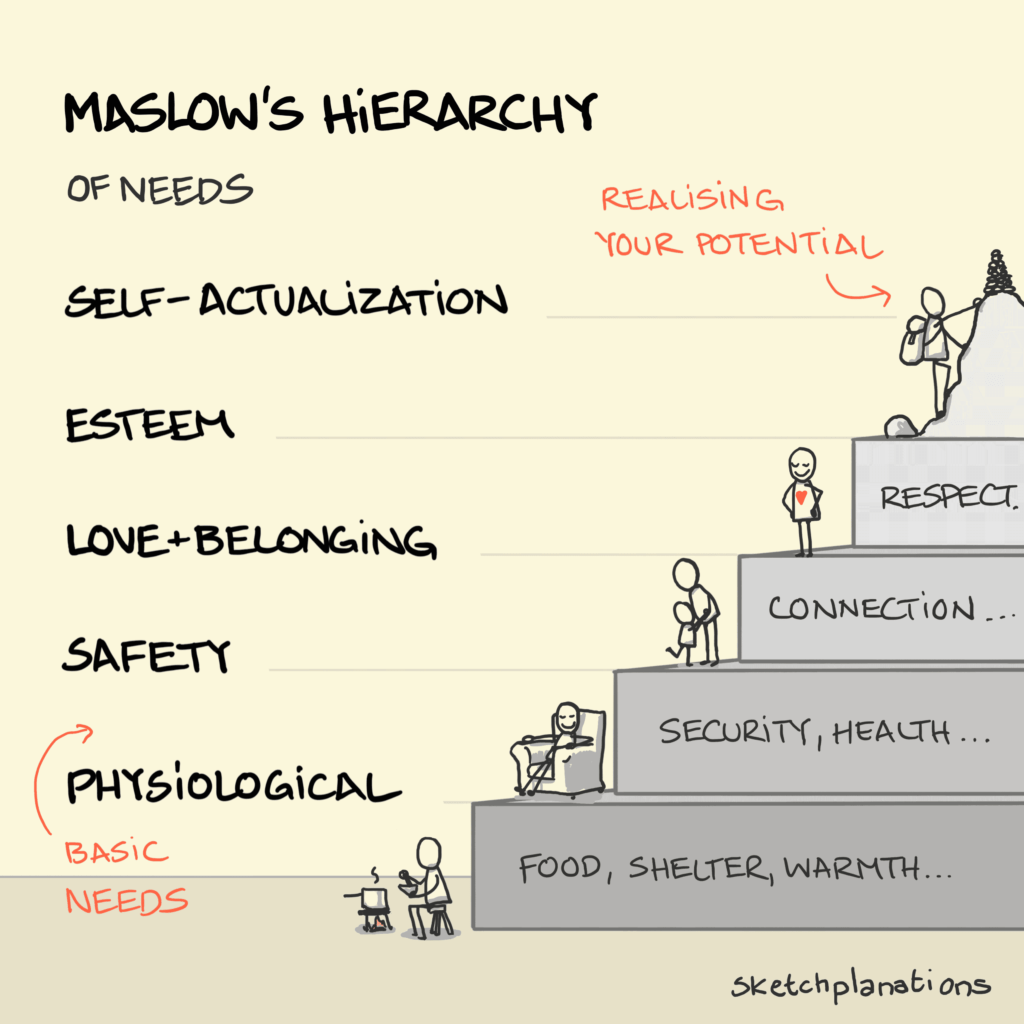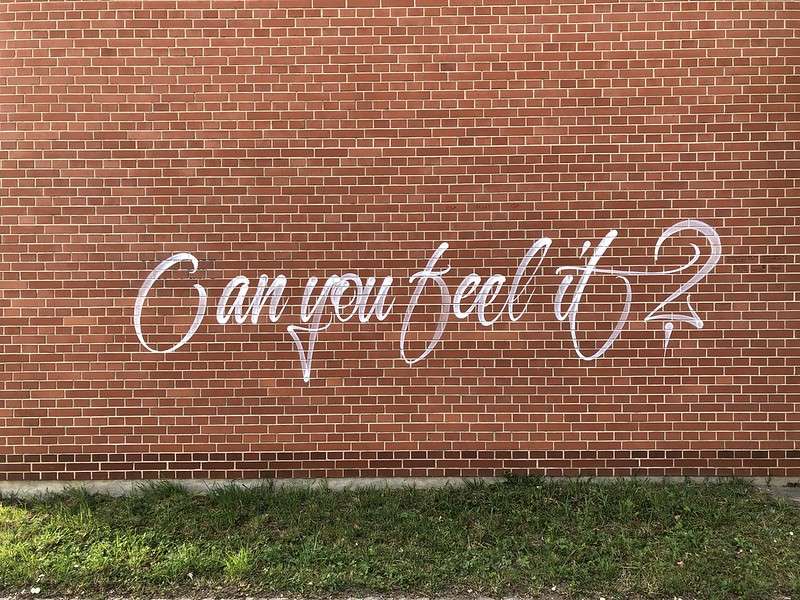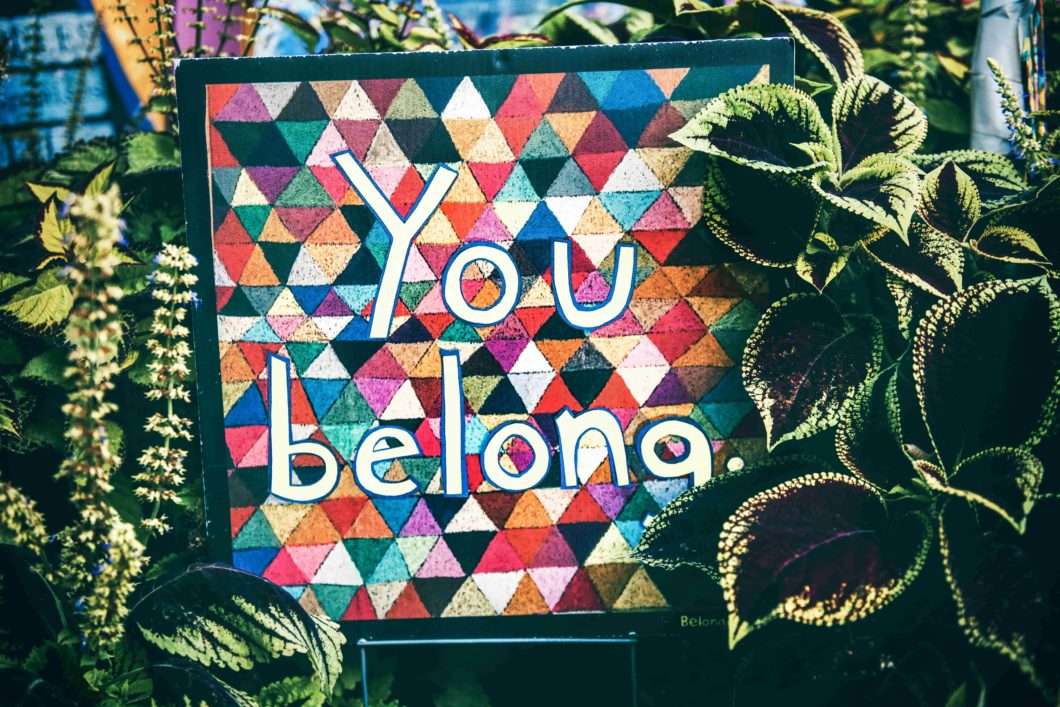Feeling seen, heard, valued, respected, included, and safe is the foundational bedrock of belonging. When you experience it, it’s like you have found your people. A group that gets you and supports you, where you can be yourself. It is a place where you are safe to express and explore, and you know you will be taken care of.
The idea seems simple: everyone wants to belong. But in a world where human connection is decreasing, it may be easy to miss just how important belonging is. Whether we experience belonging or not, it profoundly shapes our lives. It impacts our mental and physical health and our ability to thrive. It may feel like a given for those who experience it regularly. But for those who don’t, everything can feel like a struggle. Belonging should never be a “nice-to-have.” It’s an essential human need. And belongingness is much more than just being included. It is about being seen, valued, respected, and even celebrated for all of who you are, including your scars and gashes.
This post explores belonging, what it is, and why it’s critical. I conclude with a few questions to help you begin taking action toward belonging. In future posts, I will focus more on personal aspects and steps you can take to build it for yourself. In another, I will focus more on belonging at work and provide steps organizations can take to foster belonging in their cultures.
Table of Contents
Belonging and Maslow’s Hierarchy of Needs
The famous psychologist Abraham Maslow’s hierarchy of needs gives us a framework to understand the importance of belonging. Positioned as a midpoint in his hierarchy—between safety and esteem—belonging is a bridge to greater self-actualization. Without it, individuals often feel isolated, disconnected, or emotionally unsafe, unable to fully step into who they are.

The only things of greater importance on the hierarchy are physiological needs like food, water, safety, and security, both of which are considered basic needs. While one could have those two needs met and survive, they wouldn’t feel fulfilled and would likely fall into depression and other signs of loneliness.
The Evolutionary Roots of Belonging
Humans are social animals. From the moment we are born, we seek connection and comfort from those around us. This need can be traced back to our early ancestors millions of years ago. In their harsh environments, being part of a group wasn’t just beneficial; it was necessary for survival.
The safety of being surrounded by others provided early humans protection against predators and environmental threats. This need for security fostered emotional bonds that ensured the wellbeing of each community member.
Evolutionary Advantages
There are several evolutionary advantages of belonging including:
- Protection and Safety: Groups offered collective vigilance, increasing the chances of spotting dangers before they become threats.
- Resource Sharing: Communities shared resources like food and shelter, which were vital for survival during times of scarcity.
- Social Learning: Knowledge about hunting techniques, medicinal plants, and other survival skills was passed down within groups, enhancing each member’s capability.
If you were disconnected from your group, you would likely not survive. Humans require other humans for survival. While it may be true that with today’s modern conveniences, we can survive on our own, we need connection for our emotional and physical wellbeing.
Belonging and Wellbeing
Mental Health
Belonging significantly impacts our wellbeing. It acts as a buffer against stress, giving us the reserves to be resilient. Imagine having friends who understand you deeply or being part of a community that shares your values. These connections reduce anxiety and depression and help you feel happy. Individuals with strong social ties often report higher happiness and lower stress levels.
Physical Health
Feeling part of a community is also linked to numerous physical health advantages, such as lower blood pressure and increased longevity. Studies show that close relationships enhance immune function by boosting the immune system, making us less susceptible to infections. Studies on our heart health demonstrate that social support is correlated with better cardiovascular health, reducing the risk of heart disease.
A Personal Story
Studies also indicate that people who feel they belong within a community are more likely to maintain healthy lifestyles and have better recovery rates from illnesses. Take my personal example. I used to run marathons. When I first started running, I did it alone. But, as I gained confidence as a runner, I sought a connection with a local and online running community. Even though I was a beginner, I was welcomed with open arms. I felt like I had found “my people” like I belonged within the community. It motivated me to continue to run and stay active. I’m not sure I would have run five marathons if I had been at it alone.
Belonging offers health protection while enhancing our capacity for joy and resilience. Our bodies respond positively to love and connection. We need to feel like we are part of the group.
The Impact of Lacking Belonging
When we don’t have belonging, we generally experience loneliness. As a result, we face serious emotional and physical health risks. Loneliness can lead to depression, stress, and anxiety. It can increase the risk of conditions such as heart disease, high blood pressure, and a weakened immune system. Ultimately, when we are lonely, we lose the necessary health protections that help us in our daily lives.
Consider other mammals kept in isolation and its negative impact on their mental and physical wellbeing. Humans also experience profoundly adverse negative effects from social isolation. We are meant to belong, be part of a group, survive, celebrate, live, laugh, and be together. We cannot live an emotionally and physically healthy life without it.
Whose at Risk of Not Belonging?
We are all at risk of not feeling like we belong. Recent research shows that in the United States, most Americans feel an absence of belonging. This is widespread in the workplace (64%), the nation (67%), local communities (74%), and even within their family (40%).
People from underrepresented groups are disproportionately impacted. The Belonging Barometer highlights communities, such as immigrants, racial minorities, and LGBTQ+ people, often feel an even greater sense of not feeling as though they belong.
Younger people are also at risk. One study revealed that nearly one in three young people often feel completely alone, and almost 40% say they have no one to talk to. These emotional gaps often feed into more significant issues like anxiety, distrust, or a lack of confidence, shaping how we interact with the world around us.
Maintaining connections can be an uphill battle for older adults, often tied to life changes like retirement, the loss of loved ones, or health challenges. Research reveals that nearly 25% of adults aged 65 and older experience social isolation, and over 40% report feeling lonely.
People with disabilities frequently encounter significant challenges in achieving a sense of belonging due to social stigma, inaccessible environments, and systemic barriers. Research shows that adults with disabilities experience higher rates of social isolation, with approximately 40% reporting feeling loneliness or social isolation.
People in these groups have to worry about being mistreated for who they are. Imagine the weight of this experience, surrounded by people yet feeling utterly invisible. This means that some people only experience belonging in small doses within communities of like-minded individuals but rarely in familiar social settings such as schools, workplaces, and general community gatherings.
Fostering Belonging for Us All

We must understand the importance of inclusive environments so that all people can experience belonging. Every individual needs to be seen, heard, and valued. Our shared responsibility lies in creating spaces that are safe for everyone, regardless of their background or identity.
This is more than a mere desire; it is the foundation upon which we can build thriving lives and communities. Its absence leads to isolation, while its presence nurtures resilience, joy, and connection. From the evolutionary necessity of human bonds to the profound impact on mental and physical health, belonging transforms every facet of our wellbeing. For those who have struggled to feel seen or valued, it offers a lifeline, a chance to flourish. And for those who already feel embraced, it presents an opportunity to extend that warmth to others.
Together, we can co-create a world where everyone feels they belong—where scars are honored, differences celebrated, and authentic connections forged. With small, intentional efforts, we can start this transformation today in our homes, workplaces, and communities. The time to build that future is now, and it begins with each of us.
Taking Action
Consider the following questions to begin taking action today:
What steps can you take daily to ensure others feel seen, heard, and valued?
- What steps can you take daily to ensure others feel seen, heard, and valued?
- Think about someone in your life who might feel disconnected or excluded. What could you do to help them feel a greater sense of belonging?

